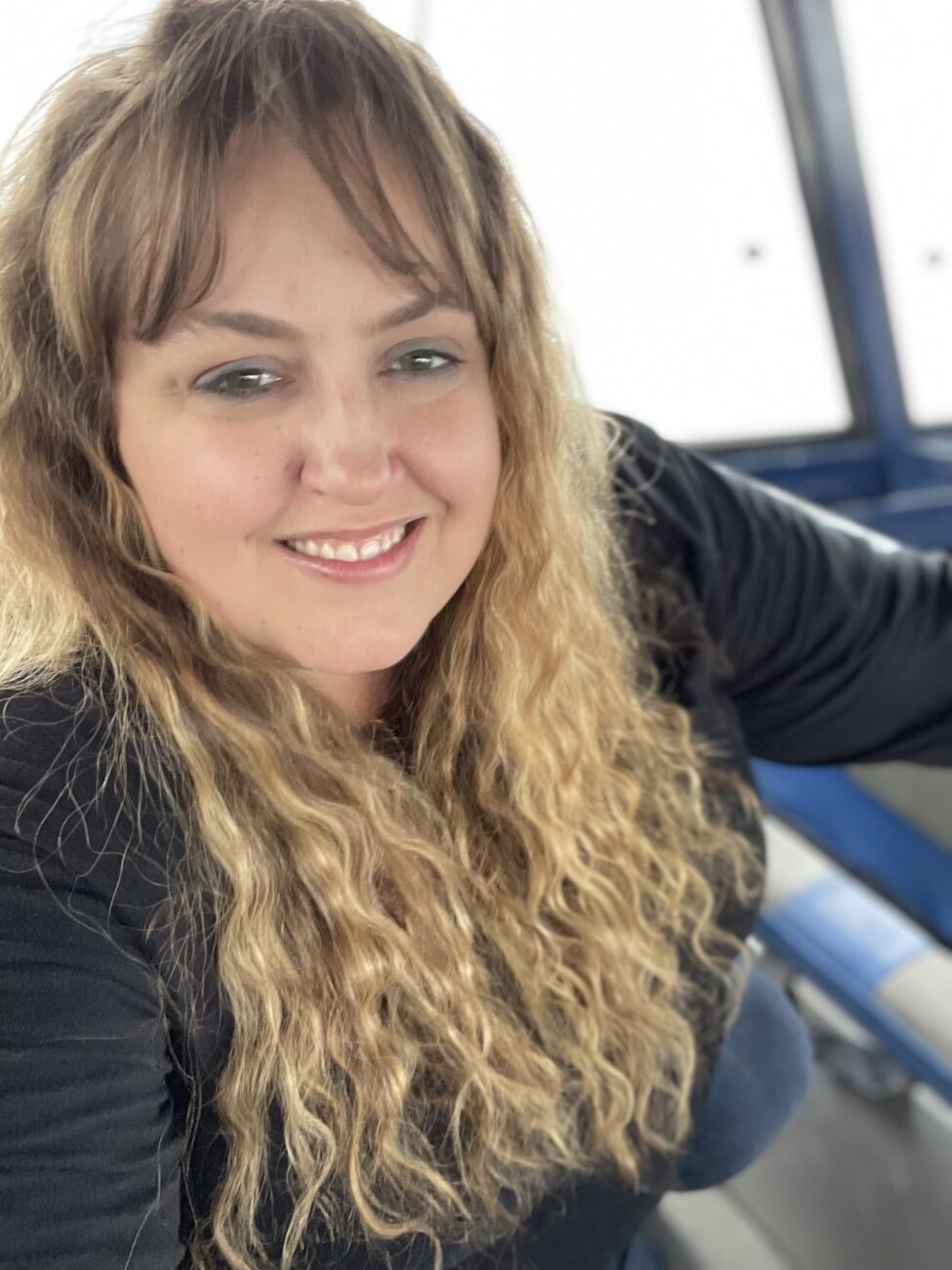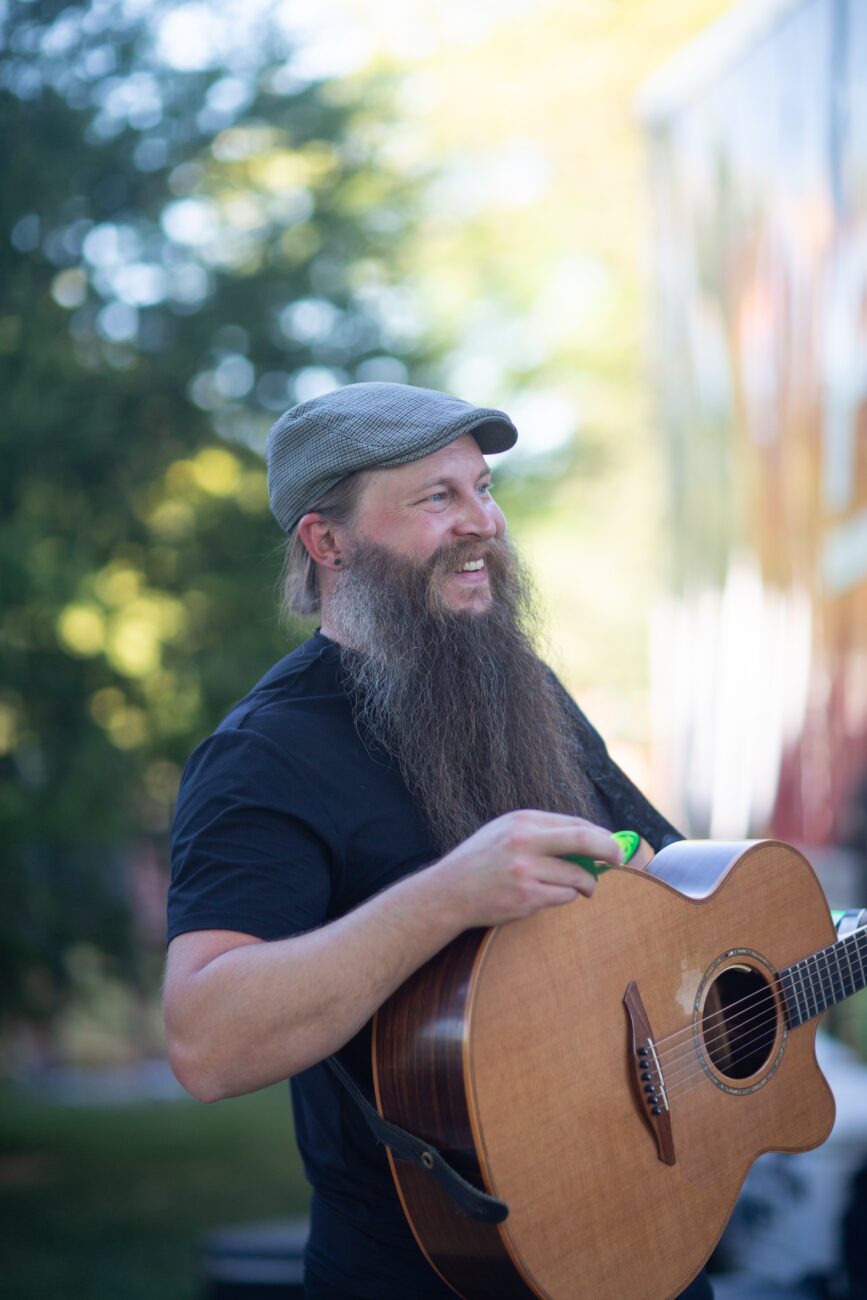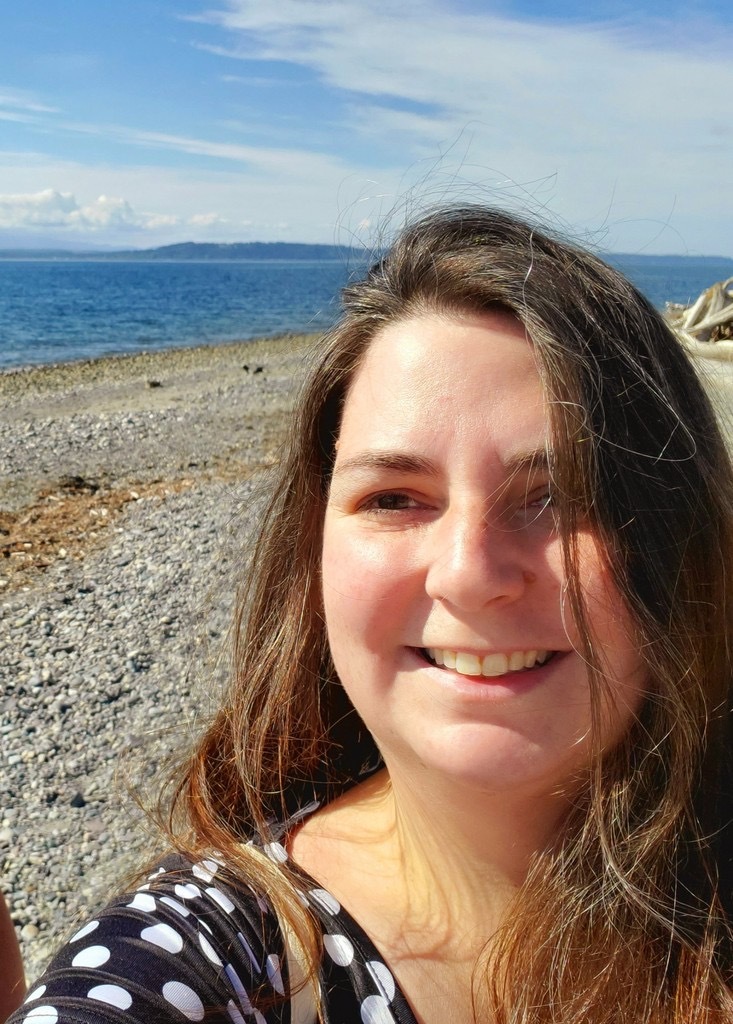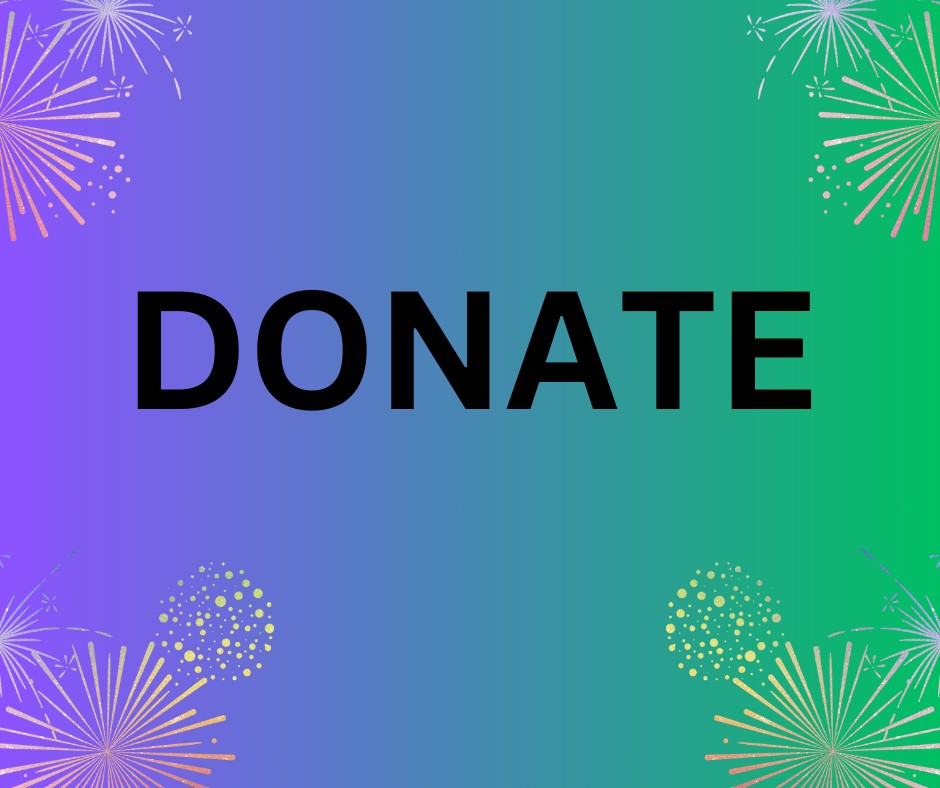


With municipal elections approaching next week, Wrangell’s School Board is looking to fill two, three-year seats during next month’s municipal election. Three candidates are running against each other: School Board Secretary Angela Allen, contender Dan Powers and School Board Vice-President Brittani Robbins.
Allen said an issue the school district faces that she’d like to address is finances. She said encouraging as much enrollment as possible could be a good solution to maintain the school budget.
Powers said one of his skills is resolving conflict by listening to community members and that’s key to having a secure school district.
Robbins said she will always stand for equity and she’s rerunning to be a voice for the students and their education.
The interviews have been edited lightly for brevity and clarity.
Will you tell us about yourself as a community member?
Allen: I moved to Wrangell in 1998. I did my senior year at Wrangell High School. I graduated in 1999. I started working at the hospital December of 1999 and I have worked there since. I do lots of different things at the hospital.
The school board’s actually been my first board that I’ve been on. I’ve been on advisory committees, but not a board until this recent term.
I was on the Elementary School Advisory Committee for, I’d say, five years, because it was when my boys were in elementary school. I did a little bit with the middle school, high school advisory committee, but not very much.
Powers: My name is Daniel Andrew Powers. I go by Dan. And well I was born here in Wrangell back in the 1900s, that’s where you get this massive beard. Apparently, my grandparents were Alan Ruby Taylor. They owned Taylor’s music here in town, and that’s where I got my start in music. That’s what I’ve done for 29 years, playing music and making songs. My wife and I sing together and we’ve been including our children into that here over the last couple years, kind of growing them into the family biz, if you will. And we moved back to Wrangell three years ago, came up from Coeur d’Alene, Idaho, and now we run a bus company, tour bus company and continue to do music. We play on one of the cruise ships that comes through town regularly and have a couple rental properties. I also drive a school bus. So taking care of people’s kids is kind of my thing.
This will be my first experience on any sort of board. I’ve been invited to be part of things before, but I have seven kids and one on the way, four of the kids are in the school system. Thought might be time to put my mouth where my heart is.
Robbins: I was raised in Wrangell my whole life. We moved here in 1989. My dad was hired as the general manager of what is now Wrangell IGA. Back then it was called Benjamin’s. During that time, my dad facilitated an upgrade from Benjamin Store, Inc. to Benjamin’s IGA. And then I think it was 1998, we purchased Benjamin’s Store, Inc. and became Bob’s IGA. Then we were Bob’s IGA until 2018.
In that year, I went to work for the school district as an IT coordinator and I did teach classes under Teacher of Record. And then 2020 with COVID and budget cuts, the position of IT coordinator is no longer a position at the school district, so I moved on to the Chamber of Commerce, and I ran that for two years, and that was interesting.
It was my first time in a nonprofit, so that was definitely a learning opportunity for myself. And now I work with the Rural and Indigenous Outreach Working Group – the Mobilization Center, which is a remote job for the state. Not as in like I work for the state, but for everyone in the state, just in civic engagement and voter education. I sit on the borough assembly. I sit on the school board.
What motivates you to run for the seat on the school board?
Allen: I enjoy it. I enjoy being a voice for the community. I have really enjoyed being a part of a team that helped make some changes for the school back in 2021 when COVID was still a big deal. We were able to help get a lot of the stuff released, as far as restrictions.
Powers: I think having a voice in the community is, you know, you don’t just get it. You have to earn it. And I think I spent the last few years, well, I spent my whole life coming and going from here and just visiting grandparents. But you begin to earn respect and build relationships slowly. You can’t just come in and steal that, right? So I think over the last three years being here, I intentionally kind of didn’t step into too many things. I mean, I’ve stayed busy. Don’t get me wrong, we work a lot, but kind of that decision making role side of things, I wanted to really get in, build relationships, build, hopefully, some strong ones. And then when people started asking, ‘Would you mind running for this? Would you run for that?’ I’ve been asked to run for mayor. I’m like, ‘I’m not ready.’ You know, I don’t think I want to do that quite yet. I think it was finally time that with enough nudging, I said, ‘I’m gonna give it a go, see what happens.’
Robbins: I do a lot of volunteering in Wrangell, I have pretty much my entire adult life. That’s probably been one of the most valuable volunteering experiences I had with the school board. I have seen a lot of change and a lot of good happen in the three years that I’ve been on the school board.
I have two kids in the school district. I went to school here, K-12. Education for every student in the state is incredibly important to me. I know that last election cycle, Governor Dunleavy wanted to open the Alaska State Constitution, and part of that was to defund public education. I’m obviously vehemently against that. I think that for the future of our state, for the future of our municipalities, for the future of our generations, just as people, education is extremely important. Having that available to every student in Alaska, every child in Alaska have the opportunity to be a student, is one of the most important things that there possibly could be for the future of both our state and our nation.
What do you think you can bring to the school board?
Allen: Just a voice helping community members understand what goes on with the school; and being a part of the team that helps the school push forward and get through different activities and stuff like that.
Powers: Hopefully somebody to bounce ideas off of. I guess I wouldn’t absolutely call myself a wise person, but I think I have some wisdom – just experience with life, having a large family and navigating all sorts of different jobs and careers and things through my life. I think I have a good grasp on how people are, how they function, and how they grow. And I like to listen. That’s another thing too. I like to build relationships. So I have two ears and one mouth on purpose.
Robbins: Just a strong, powerful voice. I stand for the students and the constituents, which are the parents of the students. Our stakeholders are who we’re supposed to be speaking for. As a governing body who is elected by the community, we are to speak for the community. We are to be there for the community and if that means making sure information goes back and forth, being a person, a face and a name that someone can contact if they have something to bring up or they want addressed, that’s what our job is. Even though I’m not physically out in the public very often because I do work from home, I am extremely available and I make sure people know how to contact me and make myself available to have those conversations and to make sure we can do the best that we can. There are, of course regulations and things that we have to follow, but I do think that I bring that connection and that voice to the school board.
What are some of the most important issues that you’d like to address, that the school board faces?
Allen: The financial end of it, of course, that’s been a big deal. Also just helping make decisions for different curriculums and stuff like that. And anything else that really involves the school and the board’s decisions to improve how the school acts on different topics.
Powers: I think watching the school system the last couple of years, it seems like a lot of hang ups are around – finances, sports and travel. There was some mix up with homeschool kids and things where they felt they were being treated unfairly from the school system. And I think it’d be interesting to get in and help navigate some of those relationships and see if we can’t pull the community together, as opposed to making it feel like there might be a wedge between the different parties.
Robbins: Funding. By no stretch of the imagination does anyone believe that we are well off. Funding is a big deal, and it’s a top down issue. It starts with the state, and then moves its way down to each individual school district. It’s going to take a lot of pressure and lobbying, I feel like, from the school districts and from the municipalities, to get the state to really open their eyes and see the problem.
The foundation formula, it needs to be completely revamped so that the Base Student Allocation actually reflects student need. You know, a lot of different facets to the space student allocation – school size, campus size, rural, village – all of those things make a difference, and that part is embedded. The problem is it has never been adjusted.
Things are different. Now I went to school here. We had two teachers for every grade because we had so many students, and now we have, I want to say, a quarter, a third, maybe on a good day, of what we had when I was going to school here. So the budget and financing is definitely a huge issue that we need to be concerned about. And I can tell you, as the chair of the budget committee and as being on the school board and working with Superintendent Burr for so many years, that we really do work hard to make sure that we are able to succeed the best we can with what we have.
What would you say solutions to some of these issues are that the school board is facing?
Allen: A lot of it is being a voice for the community, sticking up for the things that need to change, also keeping in touch with the teachers and addressing their concerns as well and making sure that those things are being considered when we make our decisions.
Powers: Meetings, talking, learning, growing, understanding where each other are. I have just a personal thing that I do is if I have any sort of conflict with a person, I don’t just let it go and, well, time will heal that kind of concept. I mean, time does help. But I’d like to go straight at things, not aggressively by any means. But if you want to try to find resolution or find peace in any situation, you don’t just sit back and let it kind of ride. You go try to pursue that thing and find common ground. There’s always going to be common ground, and if there’s not, that’s okay too. But as long as you try to make something happen to find resolution, I call that a peace making. Does that make sense? As opposed to peacekeeping, the keeping part is you just kind of keep your mouth shut. Maybe we’re just going to keep the peace, but a peacemaker, you actively go out and pursue that word.
Robbins: I kind of said it a little bit with the top-down issue and trying to get our voices heard on the state level. It’s really difficult because the school definitely works very hard. Superintendent Bill Burr, particularly, he does all of our government work, meaning he writes all of our grants. We get every grant we possibly can that we know about. He is very thoughtful in how he uses those grants to maximize the grant as much as possible within the district, and the municipality only has so much as well. Projections are not great for this year’s taxes, and even then, only a certain percentage of the taxes gets allocated to the school district. So it really comes down to the state and then for the school district, it’s really about being creative with what funds we do have.
Is there an idea that you’d like to introduce to the school board?
Allen: I don’t have anything specific right now. Like I said, being a part of the team is a big deal to me, and when there are issues that come up, just making sure that the right decisions are made.
Powers: I don’t know necessarily, quite yet, that I would have insight for that. I don’t want to come in like I own the joint. I want to come in peacefully, learn from the gang who’s been doing it for a while and kind of see how the things roll. I’ve had friends that have urged me to jump in and they have their own ideas, but that’s part of listening to the community, isn’t it? The job of a school board member is to be a liaison between the community and the school system. If I can help merge the conversations together, I think that’ll be something that I’ll probably initially try to jump right into. Just being that someone who listens to both sides.
Robbins: I have ideas all the time and I’m never afraid to bring them up, but I don’t have any great big idea, except doing our best to get the message out there.
Actually, I do frequently say that we need to be more hands on in getting word of mouth out about our meetings, about upcoming action items, and getting the public involved, because that’s who we are – there to represent.
What makes you a good candidate and why should a voter vote for you?
Allen: I’ve lived in Wrangell a long time. I currently have a senior in high school and a fourth grader in the elementary school. So as a parent, I think it’s important to be a part of those things to make sure that my children are getting the best education that they can get, and also for other students in the community.
Powers: I think that I do listen. I do care about people a lot. Actually, I’m not a guy that’s going to just ignore you if I get a text or a phone call or an email, I’m going to actively pursue friendship and learn who you are. I’ll stop on the street and say hi to you. I think that the door’s open. I mean, don’t blow my phone up, but in a respectful community, the door’s open, I’m an open book. I don’t have anything to hide. So I think that if people felt like they wanted to vote for me, they would have a friend that also has a voice, hopefully into a larger process in this community.
Robbins: Like I said in the beginning, I’ve been here my whole life. My kids are going to school there. I truly believe in public education to get kids to the point, or students to the point, of discovering who they are and what they do after school – whether it’s voc-tech, college or just their own business, whatever it is, they need that help getting to that point.
I just feel like I’m a good fit on the school board because I use my voice. I’m not afraid to rock the boat. I always have and always will vote for what’s the best for everyone. Equity is the foundation I stand on.
What would you say is the most important objective of the school board?
Allen: Just like I said, our purpose as a school board is to make sure that items are addressed in a way that benefits the community, the school and most specifically our students.
Powers: It is to learn what the community has to say, what their needs are, and it is to put that into process, plant vision, come up with plans and then present that back to the public. Then hear what the public thinks about the plan, make revisions, if need be, and then vote on those things to see that the school system moves forward, rather than be stifled by whatever it is someone feels like it always has been like. I don’t like that theory very much. So to be that voice to help move things forward, or obviously you have to have some sort of wisdom, because you’re going to have 10 million ideas and you have to boil them down to which one makes sense. And of course, there’s going to be budget restraints all along the way. I know that’s an issue. I see the stress in the school district size when that comes up. So to help ease that burden.
Robbins: Speaking for our kids and making sure our kids are getting what they need.
Schools throughout Alaska are grappling with budget deficiencies and Wrangell might be next. The reserve cap right now will be going back to pre-COVID days, where only 10% can be saved for emergencies. Now it is at 23% and we don’t know if the Base Student Allocation will be approved for next year. What solutions do you have for maintaining the school budget?
Allen: I feel like encouraging as much enrollment as possible, making sure that we have a flex where homeschool kids can in some way, be involved in our school, to help our enrollment. (Making sure we have the funds for) things that are a necessity, I think, overpowers the things that are just a want for the schools.
Powers: I guess I did my personal part. We showed up as homeschoolers and I’m sure the school board was drooling when they saw seven kids walk into town. Oh, sorry, we’re homeschooled. I didn’t get any glares in the street, so we didn’t burn any bridges. But this year my small part is we have four kids in the school system, so that that does help, right? Every little bit helps.
But as far as future growth, I’ve always been one that’s been concerned about too many, for lack of a better term, handouts. Like, ‘I need more, just give me more, give me more.’ There’s something to be said about work ethic and getting the job done and growing. I don’t know. I’ll have to get in there and creatively try to process through some of that with the guys. I’m creative. Again, I’m an artist, I’m a musician. I tend to have fast ideas on the fly, especially to be able to support somebody’s vision coming out of their mind and help kind of pinpoint some ideas to help get that done. So I’ll just be a team player when it comes to budget and moving things around, but I don’t specifically have any massive ideas at this time.
Robbins: It’s just a matter of keeping that 23% and doing our best with what we have now, and that ability to use it, and then sort of looking toward the future and how we can allocate the funds. It’s a very tricky situation. It’s a nationwide problem: schools closing down.
One thing I looked at a lot last year was the potential of combining buildings within the district, but it would actually cost more to revamp the middle school to make it elementary friendly than what we would save in not having bills for that building. There’s other opportunities, maybe utilizing only half of that building, and then the city, or whoever, using the other half. Maybe four and five go up to the middle school, and then it’s junior high/intermediate. I don’t know.
You know, those are some of the things that have been considered. There’s a lot of tough decisions, I think, coming up for us in the future, especially in the next three years, and I don’t necessarily know what those look like but I am very big on work sessions and brainstorming and creativity. We’re waiting until elections are over, but I am very strongly suggesting another work session between the borough and the school district.
Is there anything else you’d like to say about this election, the school board or yourself?
Allen: I hope that the community votes for what they want. If how they feel matters, them voting for their choices they feel are going to make the best team addition for the school board, that’s what I would encourage. Also for the future is to really make sure that the community itself, parents, especially, come to those meetings so that they can have a voice in what goes on.
Powers: I think it’ll be an interesting year. I think there’ll be some growth. I think there will be some shifting, some movement. I don’t know if that’s forward or backwards, but I think it’ll be exciting for me. I’m really excited to get to know the people that are on the board and in the district. I’ve had conversations with most of them, or interactions along the way, and I’ve always tried to make those peaceful. That must be my favorite word today, by the way – peace. I think, as we move forward, let’s do this together. Let’s listen to each other. Let’s see if we can’t advocate for all these kids, because if we don’t, then they’re going to leave this wonderful place, and then what are we going to do?
Robbins: The election is coming up very soon. It also happens to be my 40th birthday on election day. No matter who you vote for, go and vote, because it’s your fundamental right to vote. This is your opportunity to say, ‘I want my voice to be spoken by these people.’ So get out there and vote. Vote for what your heart believes or what you politically stand by, but go out and vote.












